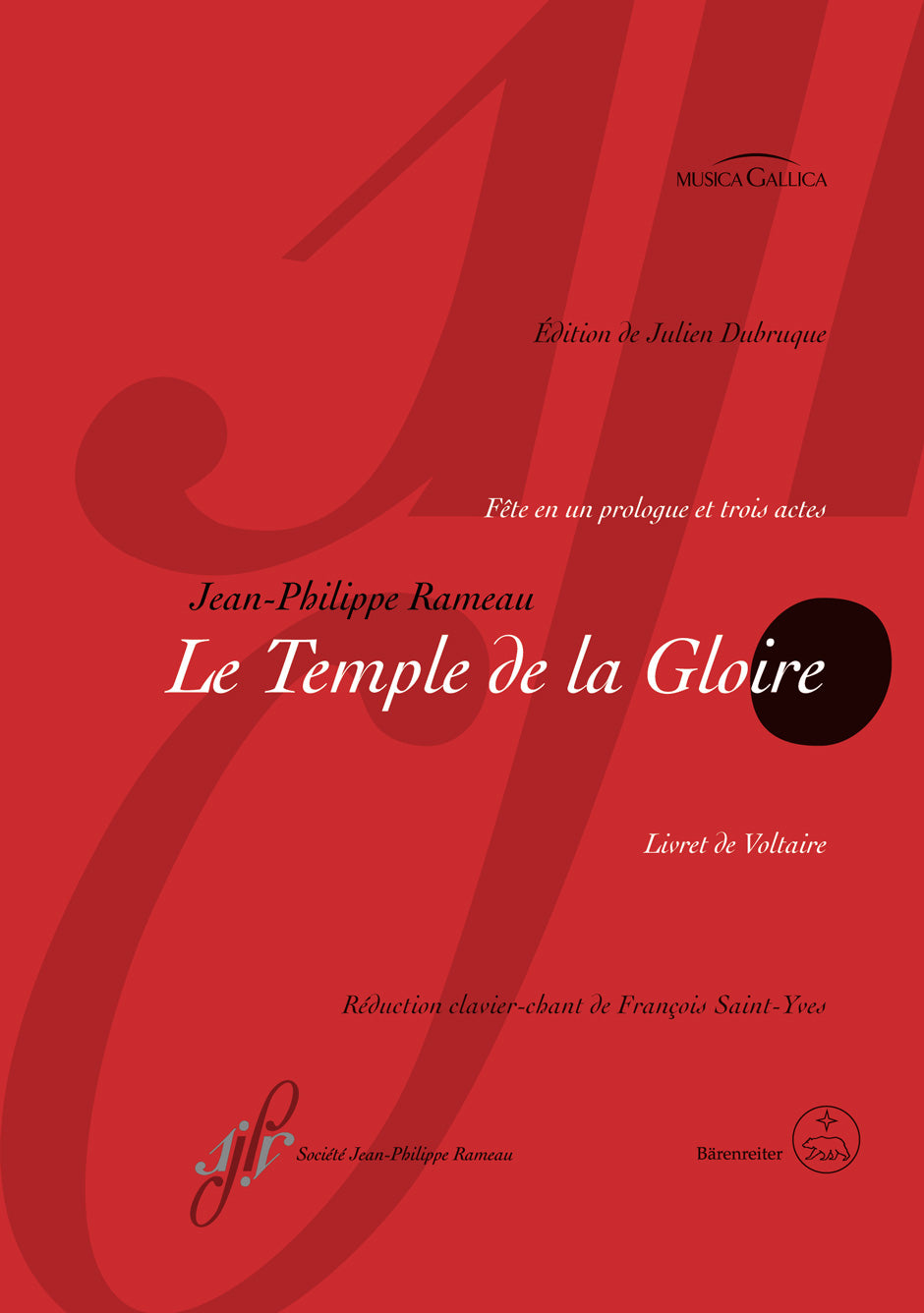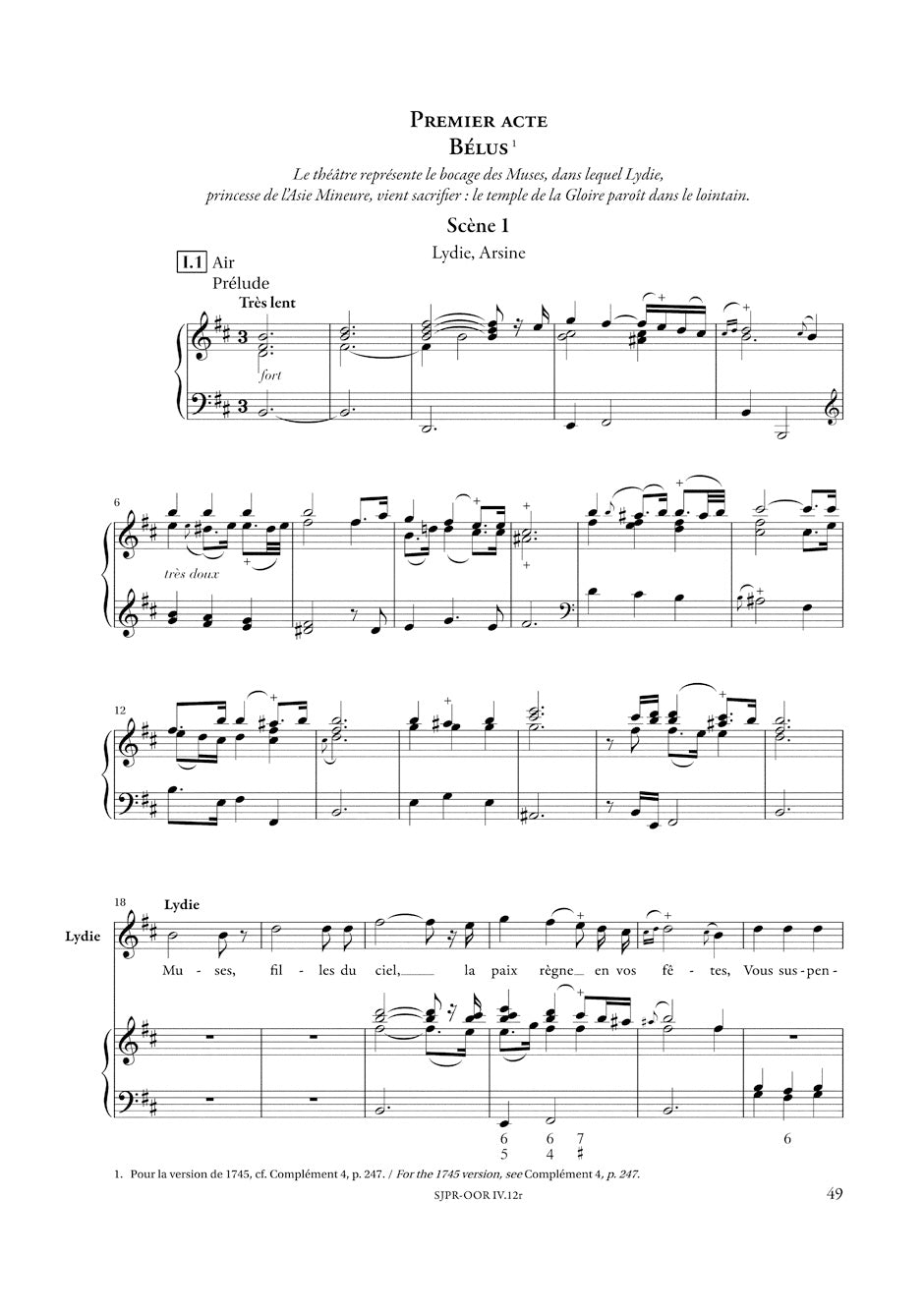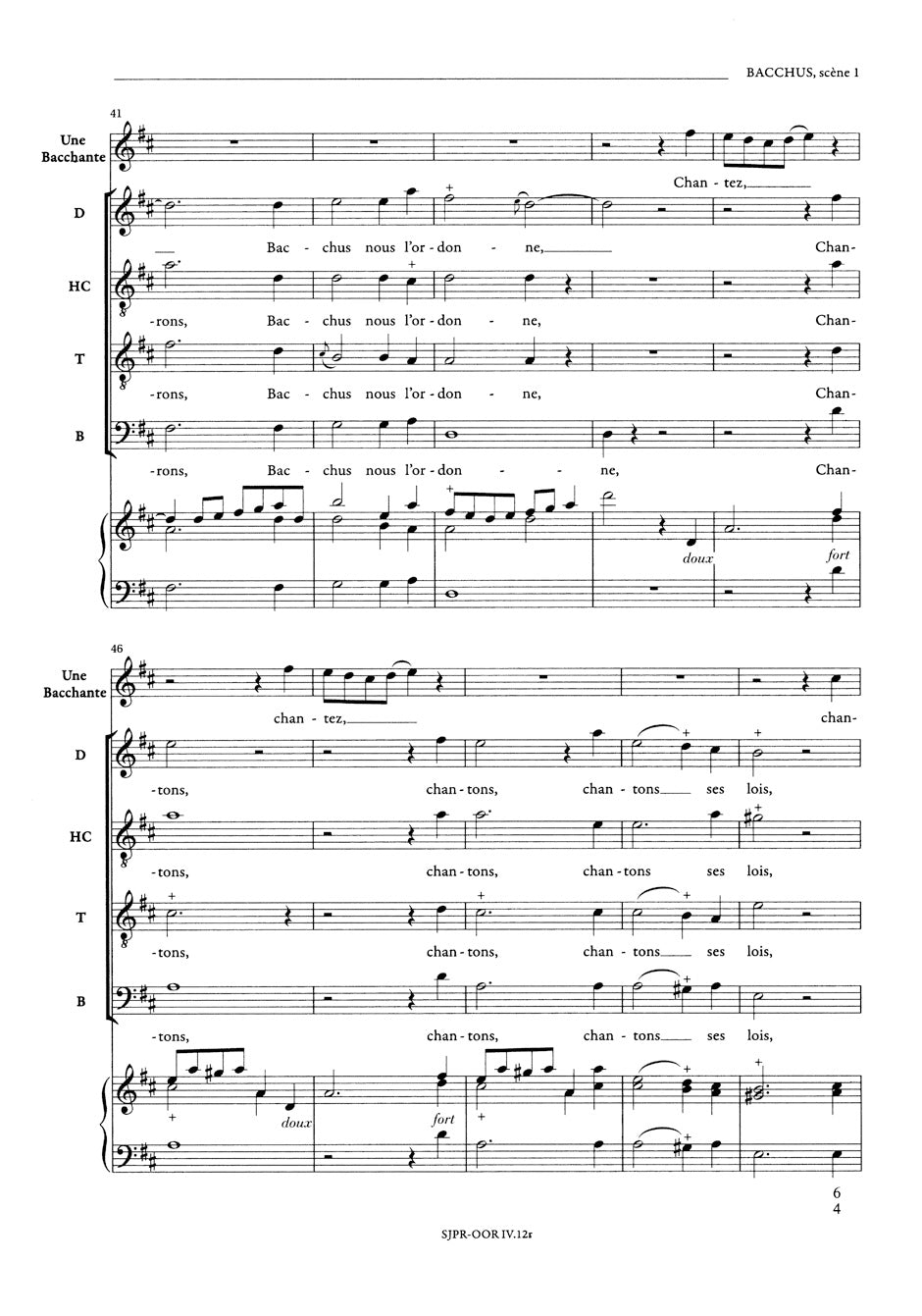


BARENREITER - 345062
Rameau Le Temple de la Gloire - Vocal Score
Composer: Jean-Philippe Rameau
Publisher: Bärenreiter
Instrumentation: Voice
Format: Vocal Score
Binding: Paperback
Dimensions: 10.6 in x 7.5 in
Pages: 403
Rameau Le Temple de la Gloire - Vocal Score
Juilliard Store
144 West 66th Street
New York NY 10023
United States
Choose options
Rameau Le Temple de la Gloire - Vocal Score
Juilliard Store
144 West 66th Street
New York NY 10023
United States
Rameau Le Temple de la Gloire - Vocal Score
Juilliard Store
144 West 66th Street
New York NY 10023
United States
Voltaire refers to Metastasio in his libretto in that he wishes to liberate the opera from the gallant milieu and to make it a moralizing stage work that is equally edifying and political. After a prologue dedicated to envy personified, the tyrants Bélus and Bacchus are chased out of the Hall of Fame and finally Trajan is crowned with laurels for defeating the rebels, forgiving them and ultimately turning the Hall of Fame into a public temple.
The music contains many remarkable passages, such as a richly orchestrated overture, the famous monologue "Profonds abîmes du Ténare" with obbligato bassoons, and Trajan's artful final scene "Ramage d'oiseaux".
